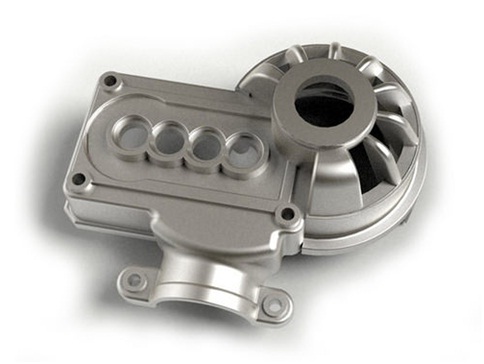The demand for Die Casting continues to heat up thanks to enhancing economic prospects. It gained significance in the industries where accuracy is the matter of concern. Die Casting process became a major preference of the users while ensuring customers with a complete product finishing process. Its advent in manufacturing and industrial units improved productivity and performance by all means. However, this process is used to mould and produce product with perfect finish.

The materials from which they are made:
Usually, die casting materials are made from non-ferrous metals such as copper, zinc, aluminium, lead, magnesium, pewter and tin based alloys. They are characterized by forcing molten metal under high pressure into a mold cavity. They maintain dimensional consistency and also suited for a large quantity of small medium casting.
DIE CASTING is a process in which molten metal is forced under high pressure into mold cavities. This molten metal helps to obtain a desired shape. On the other hand, die-casting can be done through cold chamber or hot chamber process.
How Die Casting Process helps automotive industry?
Die Casting process is a pervasive non-expandable technique in which metal is forced into the mould cavity under high pressure. These molds can be used to produce castings in various shapes, sizes and wall thickness.
Die Casting showcases a strong emphasis on automotive industry and to its manufacturers as it is essential to produce engineered products which ensure long term benefits. With the rise in trade and advent of auto industry, demand for casted parts has been increasing. Zinc Casting is considered to be the most proficient way by combining the precision with exceptional and physical properties of zinc. Meticulous parts in high volume can be availed at low costs with Aluminium Die casting.
Meet Your Specific Requirements with Die Casting in Automotive Industry:
You can achieve your specific requirements through die casting as it is economical and can be used for a wide range of complex applications. It can be fully automated and parts have longer service life, close tolerance and dimensional accuracy.
It eliminates secondary machining operations usage. Die cast parts have greater resistance to temperature extremes. They are marked as one of the fastest and most cost efficient method for producing a wide range of components.
On the other hand, it provides components in zinc, aluminium and magnesium alloys resourcefully, precisely with good technical properties and consumer appeal besides being vital to various manufacturing industries such as automotive, hardware, electrical and electronics and so on.
It ensures long life of the die mould with reliable quality over high volume. Tested and certified by professionals, die casting materials mark their excellence in all endeavours.
